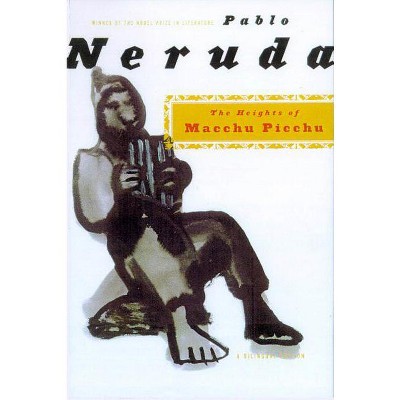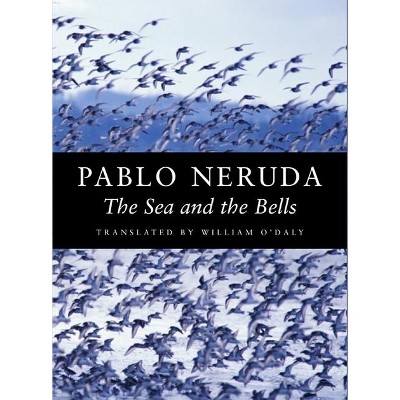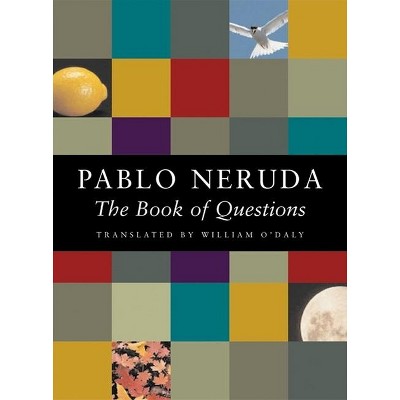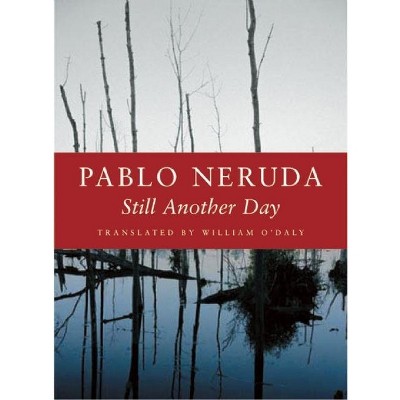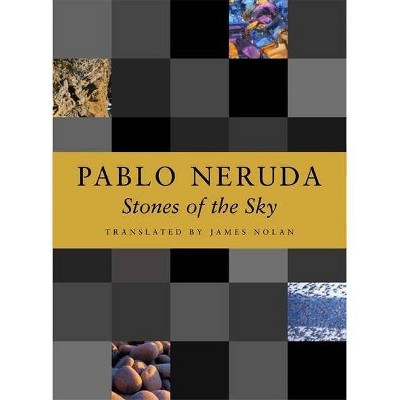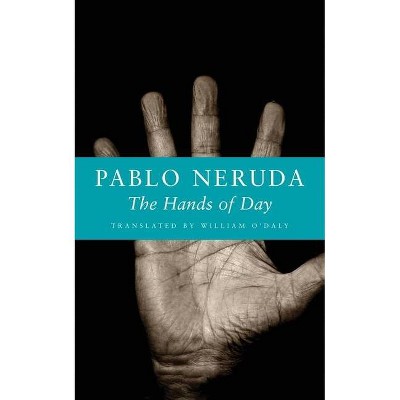Sponsored

The Heights of Macchu Picchu - by Pablo Neruda (Paperback)
$13.50Save $3.50 (21% off)
In Stock
Eligible for registries and wish lists
Sponsored
About this item
Highlights
- Pablo Neruda is the world's most beloved poet, and "Alturas de Macchu Picchu" one of his greatest poetic achievements.
- About the Author: Pablo Neruda (1904-1973) held diplomatic posts in Asian and European countries.
- 64 Pages
- Poetry, European
Description
About the Book
Pablo Neruda is the world's most beloved poet, and "Alturas de Macchu Picchu" one of his greatest poetic achievements.Book Synopsis
Pablo Neruda is the world's most beloved poet, and "Alturas de Macchu Picchu" one of his greatest poetic achievements.Review Quotes
"The greatest poet of the twentieth century-in any language." --Gabriel Garcíiacute;a Máaacute;rquez
"'The Heights of Macchu Picchu' is a poem of ascension. . . . In its final passages, Neruda's poetry jumps from a personal hope to a global one; from a poetry dealing with the poet's heart to a poetry centered on humanity's struggles. Similar to T.S. Eliot's 1921 poem 'The Waste Land' in showing the emptiness of the modern world, 'The Heights of Macchu Picch'u offers a solution that Eliot never did: become one with your past and use this to create a better future." --BBC
About the Author
Pablo Neruda (1904-1973) held diplomatic posts in Asian and European countries. After joining the Communist Party, Neruda was elected to the Chilean Senate but was forced to live in exile in Mexico for several years. Eventually he established a permanent home on Isla Negra. In 1970 he was appointed as Chile's ambassador to France; in 1971 he was awarded the Nobel Prize in Literature. Tomás Q. Morín: Tomás Q. Morín was born in Texas and educated at Texas State University and Johns Hopkins University. He is the recipient of scholarships from the Fine Arts Work Center, Bread Loaf Writer's Conference, and the New York State Summer Writers Institute. His debut volume of poetry, A Larger Country, won the APR/Honickman First Book Prize. He lives in San Marcos, Texas, and teaches at Texas State University.Dimensions (Overall): 7.55 Inches (H) x 5.49 Inches (W) x .23 Inches (D)
Weight: .2 Pounds
Suggested Age: 22 Years and Up
Number of Pages: 64
Genre: Poetry
Sub-Genre: European
Publisher: Copper Canyon Press
Theme: Spanish & Portuguese
Format: Paperback
Author: Pablo Neruda
Language: English
Street Date: December 30, 2014
TCIN: 90957498
UPC: 9781556594441
Item Number (DPCI): 247-10-2811
Origin: Made in the USA or Imported
If the item details aren’t accurate or complete, we want to know about it.
Shipping details
Estimated ship dimensions: 0.23 inches length x 5.49 inches width x 7.55 inches height
Estimated ship weight: 0.2 pounds
We regret that this item cannot be shipped to PO Boxes.
This item cannot be shipped to the following locations: American Samoa (see also separate entry under AS), Guam (see also separate entry under GU), Northern Mariana Islands, Puerto Rico (see also separate entry under PR), United States Minor Outlying Islands, Virgin Islands, U.S., APO/FPO
Return details
This item can be returned to any Target store or Target.com.
This item must be returned within 90 days of the date it was purchased in store, shipped, delivered by a Shipt shopper, or made ready for pickup.
See the return policy for complete information.
Trending Poetry



$9.85 - $23.09
MSRP $15.99 - $32.99
4.8 out of 5 stars with 147 ratings



